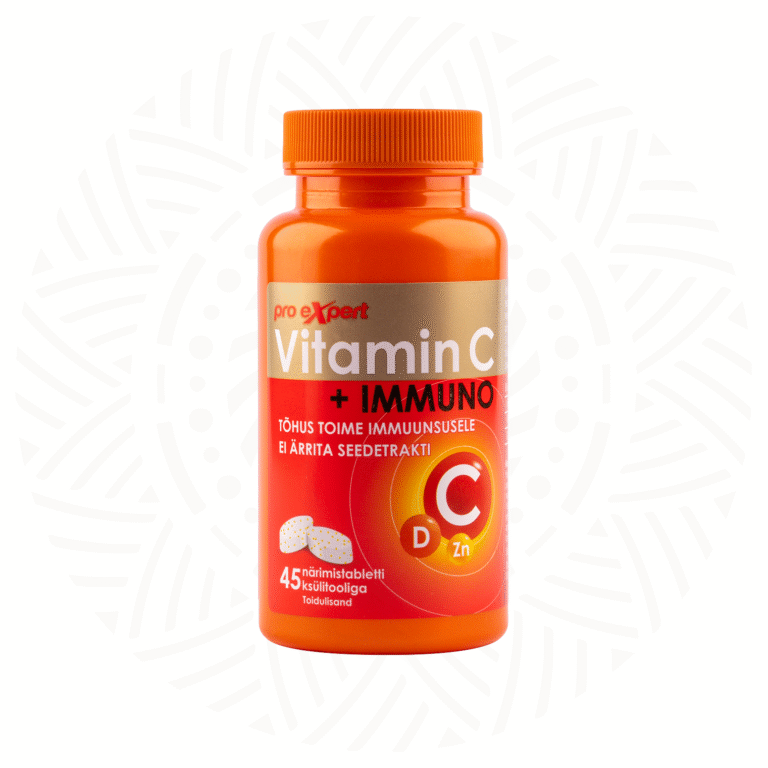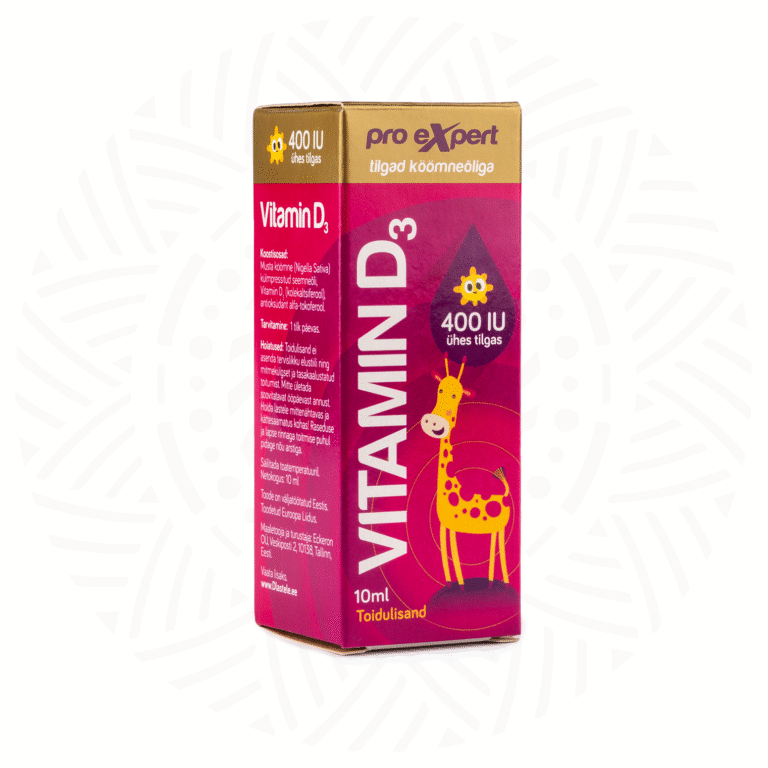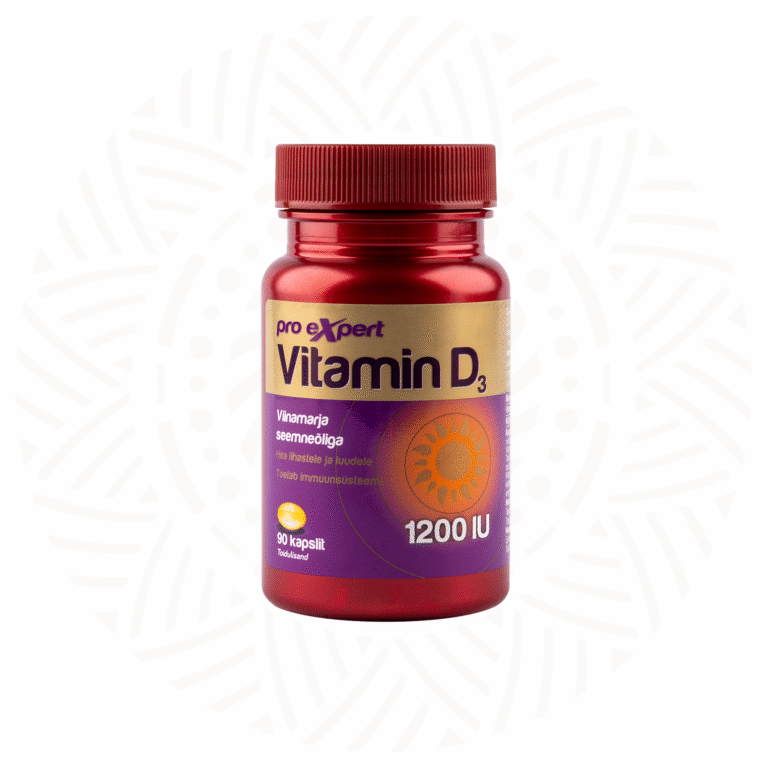When a child grows and develops, your role in supporting their health and well-being is invaluable. One crucial supporter on this journey is also vitamin D, often referred to as the sunshine vitamin. This essential vitamin plays a key role in many important functions, including bone and dental health, strengthening the immune system, and supporting mental and physical development.
Below, we provide a comprehensive overview of why vitamin D for children is so essential.
Why is vitamin D important for children?
Vitamin D is crucial for children for the following functions:
- Normal growth, as bones and teeth do not mineralize properly without it
- Normal heart function and blood clotting
- Maintaining a stable nervous system
- Effective immune system function
- Muscle function, including heart muscle performance
What diseases does vitamin D deficiency cause?
Vitamin D deficiency in children is a serious issue that can lead to several health problems, including:
- Rickets: Soft and weak bones, which can cause bowed legs, deformities, and other issues.
- Weak immune system: Vitamin D is essential for immune function. Deficiency makes children more susceptible to infections like colds, flu, and pneumonia.
- Fatigue and slow learning ability: Vitamin D is necessary for energy production and concentration. Deficiency leads to fatigue, frequent headaches, and slower learning capacity.
- Bone formation disorders: Vitamin D is needed for bone growth and development. Deficiency leads to bone disorders, increasing the risk of fractures and other problems.
- Tooth development issues and cavities: Vitamin D is vital for dental health. Deficiency can lead to developmental issues and cavities.
- Growth retardation: Vitamin D is crucial for growth. Deficiency can result in delayed growth.
- Muscle weakness: Vitamin D supports muscle health. Deficiency can cause muscle weakness, making children feel tired and sluggish.
- Obesity: Studies have shown that vitamin D deficiency can increase the risk of obesity.
Vitamin D strengthens the immune system
When vitamin D levels are low, resistance to infections is reduced, meaning the body cannot effectively fight diseases, making illness more likely. Therefore, vitamin D deficiency significantly increases children’s susceptibility to viral and bacterial infections like flu, colds, and pneumonia.
Children with sufficient vitamin D levels are healthier and recover more easily from illnesses. Regular vitamin D intake helps children recover faster from colds or flu.
Vitamin D makes children’s bones and teeth stronger
Calcium is essential for strong bones and teeth. Calcium is a fundamental component of bones and teeth, but vitamin D is necessary for calcium absorption in the intestines. Without vitamin D, the body cannot properly absorb calcium, making bones weak.
Without adequate vitamin D, normal growth and physical development do not occur. Vitamin D deficiency causes rickets, characterized by softened bones. Children with rickets have bones that cannot support body weight properly, leading to bowed and curved legs.
Rapid bone mass formation occurs most actively in early childhood. At this age, it is especially important to maintain vitamin D levels throughout the year.
Vitamin D supports children’s mental development
In addition to physical development, vitamin D significantly affects children’s mental development. Vitamin D is crucial for several brain functions, including attention, concentration, learning, and mood regulation.
Studies have shown that vitamin D deficiency may be linked to the following mental health issues:
- Attention and concentration disorders
- Learning difficulties
- Depression
- Anxiety
Vitamin D deficiency can make a child irritable and nervous, which in turn causes fatigue and slower learning ability. The main reason lies in the fact that the development of nerve cells and the skull is closely linked to vitamin D.
Vitamin D supports a healthy body weight
Studies have shown that long-term vitamin D deficiency can lead to obesity. Vitamin D reduces the secretion of leptin. Leptin is a hunger hormone produced in fat tissue, which signals the brain about the body’s energy reserves. When there is a vitamin D deficiency, the brain cannot properly interpret leptin signals, which can lead to overeating and obesity.
In Estonia, childhood overweight and obesity are serious problems. According to various studies, about one-third of Estonian children are overweight or obese. Vitamin D deficiency is one of the possible contributing factors to obesity.
When can vitamin D overdose and toxicity occur?
Vitamin D overdose and toxicity symptoms can occur primarily when a child is given excessively high doses over a prolonged period. Short-term consumption of a larger amount of vitamin D does not cause health problems for the child.
What is the appropriate amount of vitamin D for children?
A healthy toddler needs a minimum of 400 IU of additional vitamin D daily, regardless of diet or season, as their skeletal system is growing actively. Along with bone growth, the child’s muscles, internal organs, nervous system, and other bodily functions develop.
To prevent developmental abnormalities, your child will need increasingly larger doses of vitamin D as they grow. Based on this, a young child’s vitamin D requirement per kilogram of body weight is up to 7 times higher than that of an adult.
The European Food Safety Authority’s recommended safe upper limits for vitamin D intake in children are:
- Up to 1-year-old: 1000 IU
- 1-10 years old: 2000 IU
- 11 years and older: 4000 IU
What is the best vitamin D for children?
As parents, we know that the selection of children’s vitamin D products in pharmacies can be vast and overwhelming. Although many multivitamins also contain vitamin D, their dosage is often far below the recommended amount. Therefore, it is always advisable to choose pure vitamin D supplements for children.
Vitamin D for children is available in pharmacies in drop, spray, gummy, tablet, and capsule form. The easiest and most convenient way to administer vitamin D to infants is through oil-based drops. These come in single or five-drop dosages and various oil bases. Cold-pressed black cumin seed oil-based vitamin D is gentle on a baby’s stomach.
For children who can already eat solid foods, gummies are a tasty and enjoyable way to take vitamin D. Choose sugar-free gummies to protect your child’s teeth.
If a child can and is comfortable swallowing soft gel capsules, this is a great option. Most soft gel capsules are small and pose no choking risk for children.
Wishing all dear children strong health!








